Future: The hidden trauma carried by many
Article continues below
The death of George Floyd in Minneapolis, Minnesota, US, and the subsequent Black Lives Matter protests across the globe is taking its toll on the mental health of black people.
The significant role that race and systemic racism play both historically and in today's world can, and is, affecting individuals psychologically.
As a psychotherapist, the impact is often felt in the consulting room with black clients who are experiencing anxiety, anger, exhaustion and a feeling of powerlessness in the face of racial inequalities and injustices.
The experience of racism – both direct and indirect in the form of micro-aggressions or exposure to racism via the media – can have a devastating effect on the mental health of black people. This effect – known as “racial trauma” – can lead to depression, hypervigilance, chronic stress and fatigue, bodily inflammation and symptoms similar to post traumatic stress disorder.
More like this:
• Why Covid-19 has racial disparities
• Why overcoming racism is essential for humanity’s survival
• Can the legacy of trauma be passed down?
Yvonne Bailey-Smith, a family psychotherapist from London describes the continual news coverage showing the murder of a black person as “brutalising”. “[It] just feeds into the disrespect with which we are treated,” she says, “as if we are not quite human.”
As well as this, being constantly reminded that a black person is more at risk of dying of Covid-19 because of health inequalities and poverty, or that black woman have a higher chance of dying during childbirth add to the constant stream of negative messages and images associated with being black.
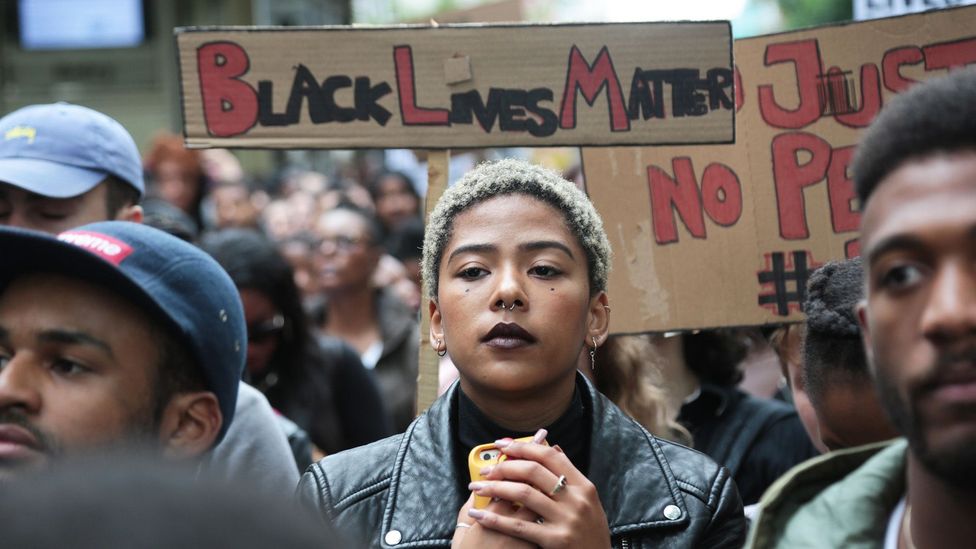
Many talk of the heavy burden of receiving a constant stream of negative messages and images associated with being black (Credit: Alamy)
“It’s all so draining and I am tired, I am exhausted,” says Dannielle Henry, a family support worker from London.
This exhaustion that many black people talk about may also be associated with the expectation to be “cheerleaders” on top of everything else. The record breaking sales of non-fiction books dealing with race suggest a collective of white people willing to educate themselves on such issues.
It’s all so draining and I am tired, I am exhausted – Danielle Henry
If the knee on the neck of George Floyd was symbolic of how countless black people have felt and experienced life for centuries, it has brought many deep-rooted emotions to the surface. But finding the right support to deal with this trauma can be difficult.
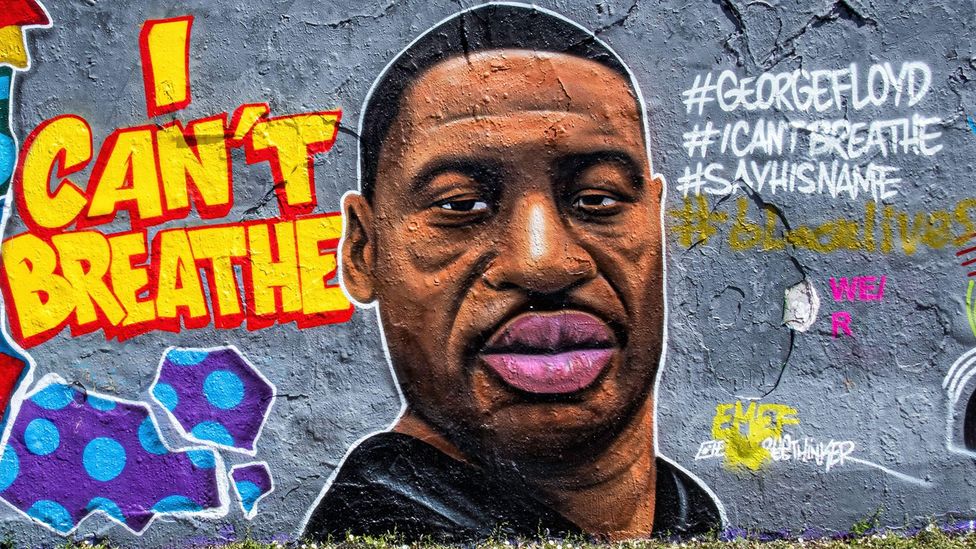
George Floyd was killed on 25 May 2020 by police who were arresting him for the alleged use of a counterfeit $20 note (Credit: Alamy)
In both the US and the UK, the majority of counsellors and psychotherapists are white. This, coupled with the high financial costs, means that black people may be less inclined to access services because of the therapist’s perceived lack of understanding when it comes to culture or indeed, the black experience.
Research has shown that a black client’s experience can be misinterpreted by a white therapist and lead to dangerous misdiagnoses. According to an independent review of the UK’s Mental Health Act in 2018, “profound inequalities” were found to exist, with black British people four times more likely to be sectioned than white people and more likely to be given psychoactive medication instead of a talking therapy.
And while medication treats the symptoms, without some sort of talking therapy the underlying issues remain unaddressed.
“This racial disparity continues to be unjust with mental health services needing serious reform,” adds psychotherapist Rotimi Akinsete, founder of mental health advocacy group Black Men on the Couch.
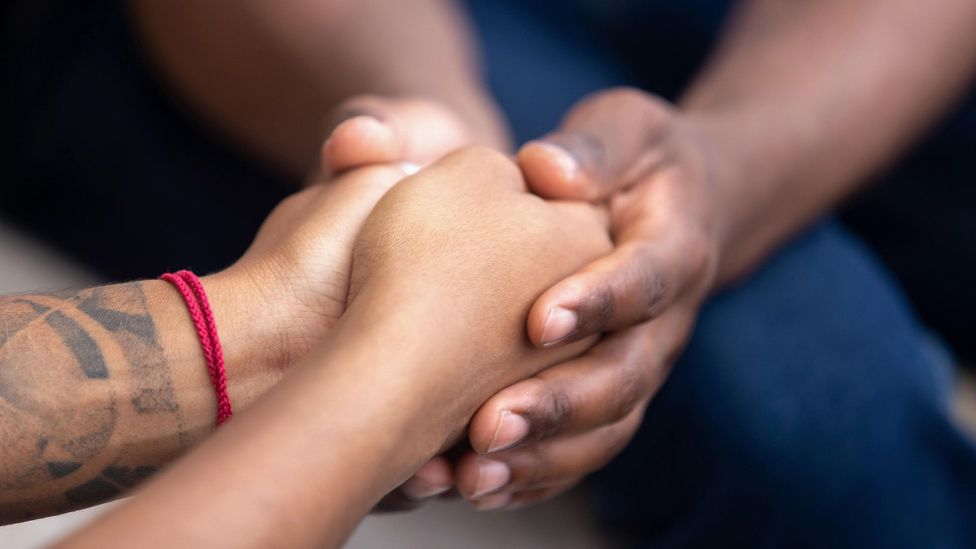
The impact of racial trauma can be profound (Credit: Alamy)
Psychotherapy for black people needs to be a safe space where they can talk about racial trauma, with an assurance their experiences will be heard and without fear it will be used as a weapon to subdue. For example being told they are using "the race card".
A somewhat naive attempt to promote equality in the consulting room has been implemented through “colour-blind racial ideology”, but sociologists have argued that when a white therapist states they “don’t see colour”, it denies the client’s race and exposes a lack of awareness regarding the therapist’s own power and privilege – aspects which collude, dangerously, to deny the lived experience of the black client.
Uncovering racial trauma
To understand the psychological trauma carried by many black people, we need to acknowledge two things. Firstly, the unconscious bias within belief systems that can stimulate and propel certain attitudes about black people and secondly, the colossal impact of systemic racism.
The term systemic racism was developed by sociologist Joe Feagin in the book Racist America: Roots, Current Realities, and Future Reparations. It affirms that "racism is embedded in all social institutions, structures, and social relations composed of intersecting, overlapping, and co-dependent racist institutions, policies, practices, ideas, and behaviours that give an unjust amount of resources, rights, and power to white people” – whilst denying them to black people.
When a white therapist states they ‘don’t see colour’, it denies the client’s race
Currently, the world is talking about these issues. And while this may appear to be a positive step, it’s also a reminder that white people hold the power of discourse. In the past, black people have had to “put up and shut up” in the face of microaggressions, prejudice and racial profiling – for example, in the workplace.
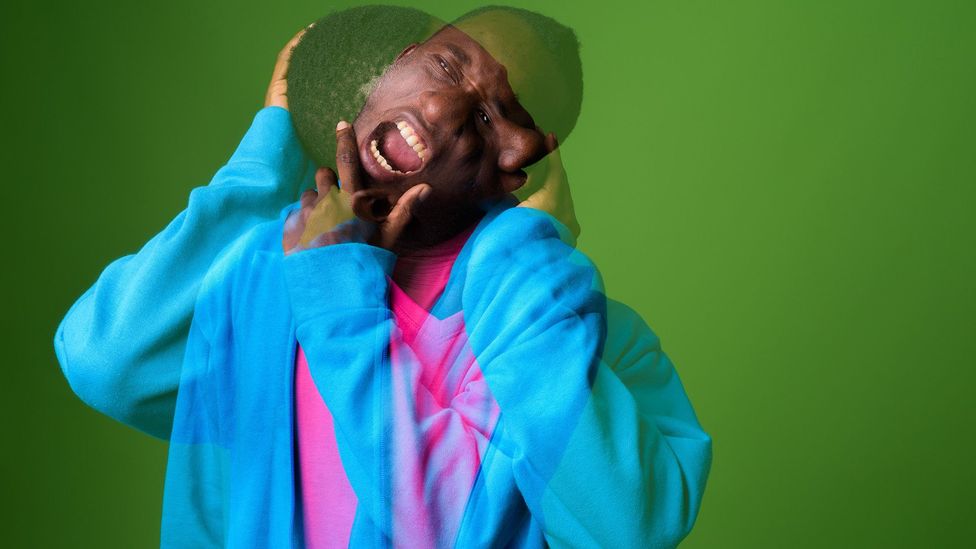
Colour-blind racial ideology is a 'naive attempt to promote equality' (Credit: Alamy)
This constant silence in order to simply “live” can be felt as just another re-enactment of being powerless, voiceless and not being heard. Because, up until now the world has not been responsive to black pain.
“It has always felt like black lives haven’t really mattered in society,” says Julia Williams, a writer and psychology graduate. Perhaps it may be an unrealistic expectation to believe that this has all changed overnight.
Ancestral trauma
Psychotherapists generally acknowledge that a client may have a reaction to recent events that have roots in the past. When it comes to systemic racism, this can include unhealed intergenerational wounds such as psychological and social trauma passed down from previous generations. From parents who arrived in the UK during the 1950s and 60s to such hostility as “No Blacks, No dogs, No Irish” signs, to grandparents in Louisiana who saw the heavy and violent enforcement of racial segregation under Jim Crow laws.
Hearing these traumatic stories of survival can position black people from an early age to believe their immediate world is a threatening one – proven by their own interactions and society as a whole.
In fact research has shown that black infants have higher levels of cortisol reactivity than white infants by the time they are 12 months old. Cortisol, the body’s main stress hormone, works with parts of the brain to control mood, motivation, and fear. The researchers behind the study at Cambridge University concluded that “experiences of discrimination contributed to cortisol differences within black infants, suggesting that racial discrimination is already ‘under the skin’ by one year of age”.
For parents of young black boys “having the talk” on how to survive being stopped by the police is a rite of passage. “I and every parent of black boys have had this conversation with them as early as twelve,” says Timmothy Mccann, a pastor and writer from Atlanta, Georgia.
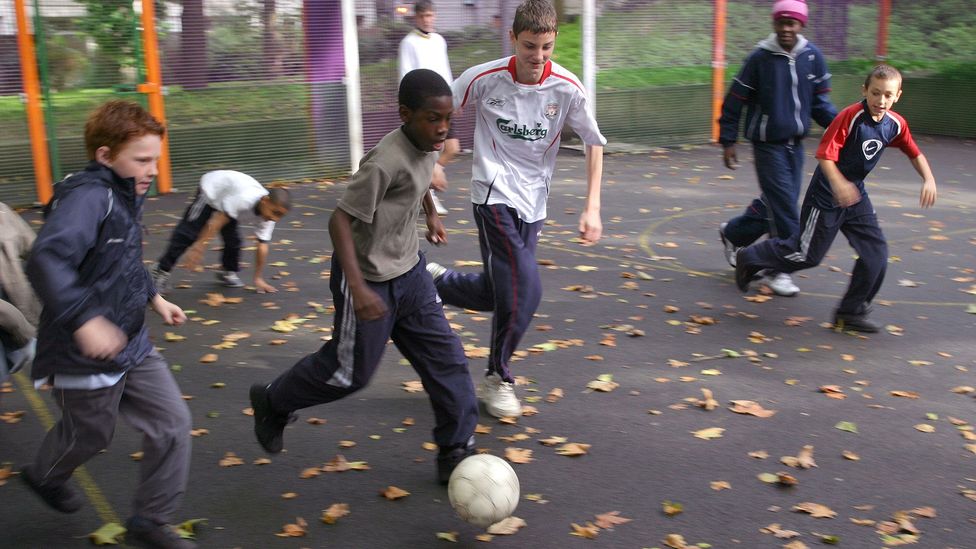
Parents of black boys say that having a conversation about the dangers they might face is a rite of passage that happens at a young age (Credit: Alamy)
In the UK, figures show that black people are eight times more likely than white people to be stopped and searched by police. Police in the UK are also five times more likely to use force against black people compared to white people. In the US, incidences like that of George Floyd - filmed or not - show that in some parts of the US, police kill black people at a rate six times higher than that of white people.
Some studies have suggested that racial trauma can also be passed from one generation to the next. The process of epigenetics is how experiences during a person’s life are thought to alter the readability of their genes through the addition of chemical switches to the DNA molecule. There is some evidence that suggests switches added after traumatic events can be passed down to future generations and manifest in the form of higher mortality rates.
Author and researcher Joy DeGruy uses the term Post Traumatic Slave Syndrome (PTSS) to describe the enduring injury black people in America and elsewhere are experiencing. While PTSD (Post Traumatic Stress Disorder) results from a single direct or indirect trauma, PTSS asserts that black people globally have suffered collective grief and trauma over years and generations, which helps to explain “the consequences of multigenerational oppression from centuries of chattel slavery and institutionalised racism, and to identify the resulting adaptive survival behaviours”, says DeGruy.
Is the end in sight?
As with any trauma, the road to healing is possible – with work. Whilst naive to think that the issue of systemic racism will disappear overnight, it is important that the conversation is continued – by both white people and people of colour - without prioritising white guilt or discomfort.
As a wider collective, working to dismantle systemic racism is a start. But what about inside the consulting room?
It is possible for black people to live triumphantly
The journey to healing begins as soon as this pain is shared, and the accompanying feelings are fully acknowledged. It begins by telling the entire story – the bad as well as the good. Living in a society built on systemic racism means being reminded of the trauma daily. Therefore, the need to be one’s own “inner therapist” can be a useful tool.
This can be achieved by further developing a strong sense of ethnic identity that can involve educating oneself on a history that does not solely rest on the negative, but also embraces positive aspects – for example that African history did not begin with slavery.

For a myriad of reasons, black people are often less inclined to seek help with their mental health (Credit: Alamy)
It can be done through developing a deeper sense of connection and pride in racial identity and culture such as literature or food. It is also important to find a time and space for rest – a much needed addition to a fight that is ongoing.
Psychological issues are complex and deeply rooted, yet it is possible for black people to live triumphantly – albeit guardedly – in the world today. There are countless individuals who do this every single day.
Being black is more than a trend. It is a shared experience, an identity, it is everything. So, when the scramble is over and the hashtags are replaced by another, black people will still have to carry on living with their internalised experiences.
Comments
Post a Comment